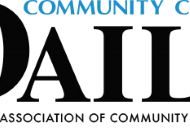Washington Watch: Aiming to double the Pell Grant maximum

Community College Daily
David Baime
March 2, 2021
As part of its overall advocacy strategy to promote equity and student success, the American Association of Community Colleges (AACC) is endorsing a doubling of the Pell Grant maximum.
The Pell Grant program continues to draw strong bipartisan support and receive funding increases, but a substantial gap remains between the grant’s size and student needs. The maximum grant is scheduled to increase by $150, to $6,495, for the award year that begins July 1. More students will qualify for Pell grants through last year’s FAFSA Simplification Act, but that legislation did not increase the grant size.
AACC is part of a broad-based coalition to double the Pell Grant maximum, and member institutions are encouraged to sign a letter that seeks doubling Pell. The letter is circulating among all sectors of higher education, and many community colleges may want to be represented along with AACC.
President Joe Biden’s support for doubling Pell during his campaign has helped to increase political support for a major new investment in the program. Since that time, administration officials have referred to this proposal as a prime element of the Biden-Harris higher education agenda.
The proposal has not received a formal cost estimate, but it would be considerable. However, new political dynamics, as well as the expiration of statutory caps on annual appropriations, may make major new investments possible. Biden’s formal budget request for next year is expected sometime in May and will send a strong signal to congressional appropriators.
AACC’s support for significantly increased Pell Grant spending aligns with the association’s continued strong support for establishing Pell eligibility for short-term programs. The bipartisan JOBS Act is expected to be reintroduced in Congress soon. Unfortunately, opposition to this new eligibility remains fierce, particularly from the political left, which asserts that short-term programs do not represent real opportunity, nor lead to good jobs. An AACC policy brief dispels these arguments.








